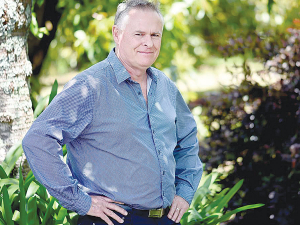Fonterra Suppliers Confident in Mainland Dairy Future
Fonterra's 460 milk suppliers in Australia, who will switch to Lactalis end of this month, are unfazed with the impending change.
 Fonterra chairman Peter McBride says the co-op's future success relies on its ability to maintain a sustainable milk supply in an increasingly competitive environment.
Fonterra chairman Peter McBride says the co-op's future success relies on its ability to maintain a sustainable milk supply in an increasingly competitive environment.
Fonterra could lose up to one-fifth of its milk supply unless it adopts a new capital structure.
The warning was delivered by chairman Peter McBride last week as he unveiled a revised capital structure proposal to farmer shareholders.
The revised proposal has key changes including a minimum shareholding requirement for farmer suppliers, allowing sharemilkers, contract milkers and farm lessors to buy co-operative shares and easier exit and entry provisions for supplier.
McBride and the board will take the new proposal back to shareholders in the coming weeks for further consultations.
He's confident of farmer support.
McBride says changing the co-operative's capital structure is a critical decision and not something the board and senior management are taking lightly.
"We are confident that thhis proposal would support the sustainable supply of New Zealand milk that our long-term strategy relies on."
McBride notes that Fonterra's future success relies on its ability to maintain a sustainable milk supply in an increasingly competitive environment.
"We see total New Zealand milk supply as likely to decline, and flat at best. Our share of that decline depends on the actions we take with our capital structure, perfomance, productivity and sustainability.
"If we do nothing, we are likely to see around 12-20% decline by 2030 based on the scenarios we have modelled."
Key changes are:
Unhappy Investors
Investors holding units in Fonterra Shareholders Fund are unhappy with the co-op's proposal to cap the listed fund.
In a letter to unit holders, the fund's chairman John Sherwin says retaining the fund, but removing features that support growth, liquidity, and relevance to investment markets, could put downward pressure on unit pricing.
The price of the units has declined about 25% since early March, when Fonterra published results of a shareholder survey that showed high support for farmer control and little interest in raising external capital.
New DairyNZ research will help farmers mitigate the impacts of heat stress on herds in high-risk regions of the country.
Budou are being picked now in Bridge Pā, the most intense and exciting time of the year for the Greencollar team – and the harvest of the finest eating grapes is weeks earlier than expected.
The Real Estate Institute of New Zealand (REINZ) has released its latest rural property report, providing a detailed view of New Zealand’s rural real estate market for the 12 months ending December 2025.
Rural retailer Farmlands has released it's latest round of half-year results, labeling it as evidence that its five-year strategy is delivering on financial performance and better value for members.
OPINION: "We are back to where we were a year ago," according to a leading banking analyst in the UK, referring to US president Donald Trump's latest imposition of a global 10% tariff on all exports into the US.
DairyNZ says the Government’s proposed Resource Management Act reform needs further work to ensure it delivers on its intent.